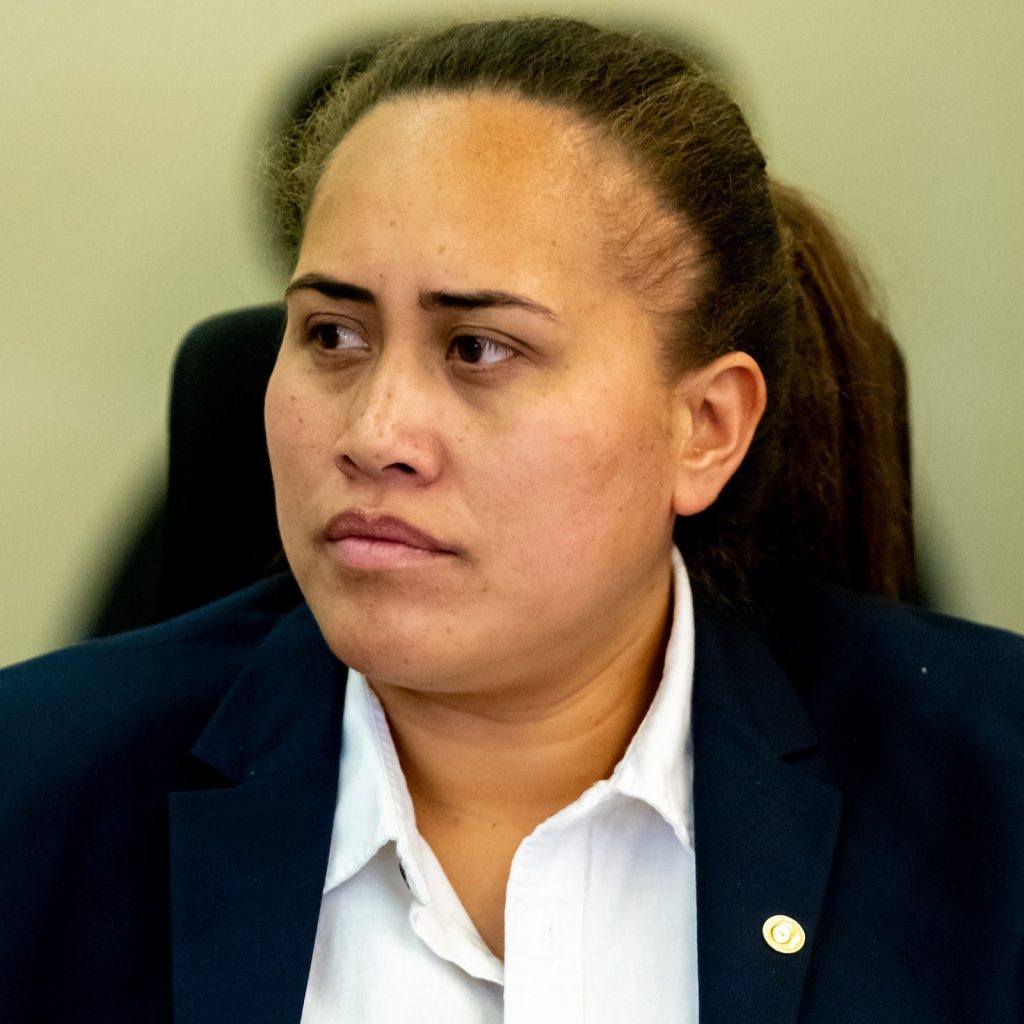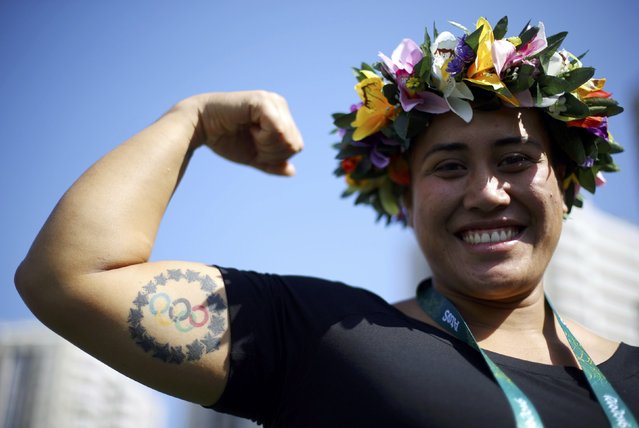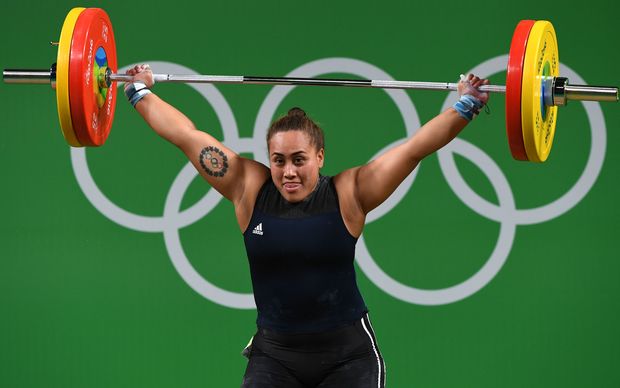Celebrating women in weightlifting: Luisa Peters (COK)
When celebrating the International Women’s Day, the best way to illustrate their importance, namely in the world of weightlifting, is to point out concrete examples. On this special occasion, we look into a tiny country in the middle of the Pacific Ocean, constituted by paradisiac portions of land, the Cook Islands. With less than 20’000 inhabitants, a distinguished citizen and successful lifter has become one of the most respected members of the weightlifting family: Luisa Peters.
Born on June 27, 1993 Peters is presently a member of the IWF Athletes Commission – she was elected with her peers during the 2022 IWF World Championships in Bogota (COL) -, but is also part of the IWF Executive Board (EB). After the recent reforms in our International Federation, its Board includes three members of the Athletes Commission, with full voting rights – its Chairman Forrester Osei, the Olympic champion from the Philippines Hidilyn Diaz, and Peters. Overall, the EB has nine women, well above the minimum six stipulated in the IWF Constitution.

But Peters’ path began well before she could be at the top of the IWF management. “I was introduced to weightlifting at the age of 14 years old by my grandmother who was a sports enthusiast. She had taken to me the National Weightlifting training centre and I was coached by Sam Pera Snr who was the top weightlifter in the Cook Islands,” she recalls. By that time, in 2007, women’s weightlifting around the world was getting consolidated, after the entry into the Olympic Games in 2000, and the first IWF World Championships in 1987.
In the Cook Islands, the situation was not different: “I remember as my grandmother and I pulled up to the training centre, she told me ‘Luisa, I want you to do weightlifting, I want you to show female athletes that no matter the barrier we can achieve our goals’. Weightlifting was not a sport that females did in our country. So, if I had to convince, today, a teenage girl to start weightlifting, I would also say ‘Go for it, weightlifting is for both boys and girls and don’t let anyone tell you that you can’t do it!’”

Motivated by another strong woman, her grandmother, Peters soon realised she had talent and potential in the sport. “I attended my first international competition in 2008, the Oceania Championships”. Looking at the IWF records, this debut was modest – in the +75kg category, she lifts 48-60-108, exactly three months before completing her 15th birthday.
Things would progress quickly, and in October 2009, she gets her first medal, at the Commonwealth Junior Championships, finishing third in 58-74-132. Fast forward three more years, and we find Peters at the 2012 Olympic Games in London. “I was the first female Olympic weightlifter for the Cook Islands, and I was the only one for quite some time until another female athlete, Phillipa Woonton, joined me in 2015”. In the British capital, she is 11th in the +75kg, lifting 82-100-182.
In 2015, she takes part in the IWF World Championships, and despite a solid progression (95-115-210), she is only 29th in her category. In August 2016, she travels to Rio de Janeiro for her second and final Olympic participation – she does again much better (100-124-224), and leaves Brazil in 14th place. Two years later, she concludes her career at the Commonwealth Games, with a 100-125-225 effort (fifth overall), one kg short compared with her personal best of 100-126-226 achieved in 2017 at the Pacific Cup International, an event she won. “The Olympic participations are my best memories in the sport as they are the pinnacle of any athlete’s career”.

For more than five years now, she has conciliated her normal job as a police officer, with her duties in the IWF and in the Oceania Weightlifting Federation (as Vice-President, she was the first-ever female board member of the continental body), but also with the presidency of the Cook Islands Weightlifting Federation, for which she was elected at the end of February. Reflecting on her IWF responsibilities, Peters says: “This is really important to me because it means that our small continent of Oceania has a voice within the IWF. Overall, I think the number of women competing and officiating in weightlifting has grown in recent years. When I started, there were very few women involved in weightlifting but fast forward 15 years and most countries have now a full youth, junior, and senior women’s team. Moreover, IWF is doing well in promoting women in sports, just have a look at the number of females we have on the Executive board”.
On a more local level, and taking into account the geographical challenges of her tiny nation – the international airport of Rarotonga, in the Cook Islands, connects Auckland, in New Zealand, in about five hours, Honolulu, in Hawaii, in seven hours, and Sydney, in Australia, in eight hours! -, she is well determined to keep weightlifting in good shape. “My plan for the future is to develop Athletes and Officials in weightlifting in the Cook Islands so that our sport can stay alive for when I’m no longer involved”.
As a weightlifting role model in Oceania, Peters believes that Sport can be a strong tool to improve gender-balanced representation around the planet. “Sport is really a powerful platform, where all genders can be embraced equally. Sport can help by opening lots of opportunities for all genders so that all can enjoy a high quality of life,” she concludes.
By Pedro Adrega
IWF Communications
Check also an inspiring story on the International Women’s Day in the Asian Weightlifting Federation’s website:
Strength in Diversity: How Women are Reshaping the World of Weightlifting – Asian Weightlifting Federation (awf.sport)










